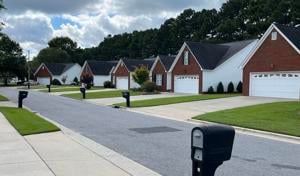(The Center Square) – Illinois now ranks as the least affordable state for housing in the Midwest, with 1 in 3 households paying more than 30% of their income for housing as property taxes continue to rise.
U.S. Census Bureau data analyzed by the Illinois Policy Institute also shows that at least 15% of households pay upwards of 50% of their income for housing, rendering them by federal standards as “severely burdened.” At the same time, data shows that the typical homeowner’s property taxes have jumped by $756 since 2019, leaving the state home to the second-highest rates in the country.
Rep. Dan Caulkins, R-Decatur, is sounding the alarm as property taxes are on the rise.
“It’s having a devastating effect and it’s only getting worse,” Caulkins told The Center Square. “We’ve seen our population decline and it’s also a deterrent for new businesses to come to Illinois. In order to keep or attract businesses, we’re having to give them all kinds of incentives. It’s if you’re taking money out of the left pocket and putting it in the right pocket and claiming that you’re creating jobs.”
Caulkins said the taxpayer cost of government continues to increase.
“It’s clearly a testament to the Democrat government,” Caulkins said. “We’re forcing local municipalities, taxing bodies with all of these mandates. It pushes that burden, that decision on local governments to find a way to replace that revenue.”
Overall, the typical Illinois homeowner now pays roughly $5,055 in property taxes or more than double the national average of $2,457.
Caulkins frets there is little relief in sight with Democrats holding the supermajority in the Illinois General Assembly.
“They’ve got a $52 billion piggy bank and they don’t feel threatened because they’re able to draw the map and they don’t face any serious electoral challenges,” he added.
Caulkins is also quick to point out that the state has now lost population for 10 straight years. More than 50% of voters polled in a recent survey cited high taxes as the primary reason they would leave if given the chance.
“The more we require these communities to do, the higher our property taxes go,” he said. “The more people leave, the fewer people are here to pay the bill.”
Still, the veteran lawmaker argues there’s a simple solution.
“We need a cap on property taxes until we get our house in order and quit mandating all of these things down to the local level,” Caulkins said.







